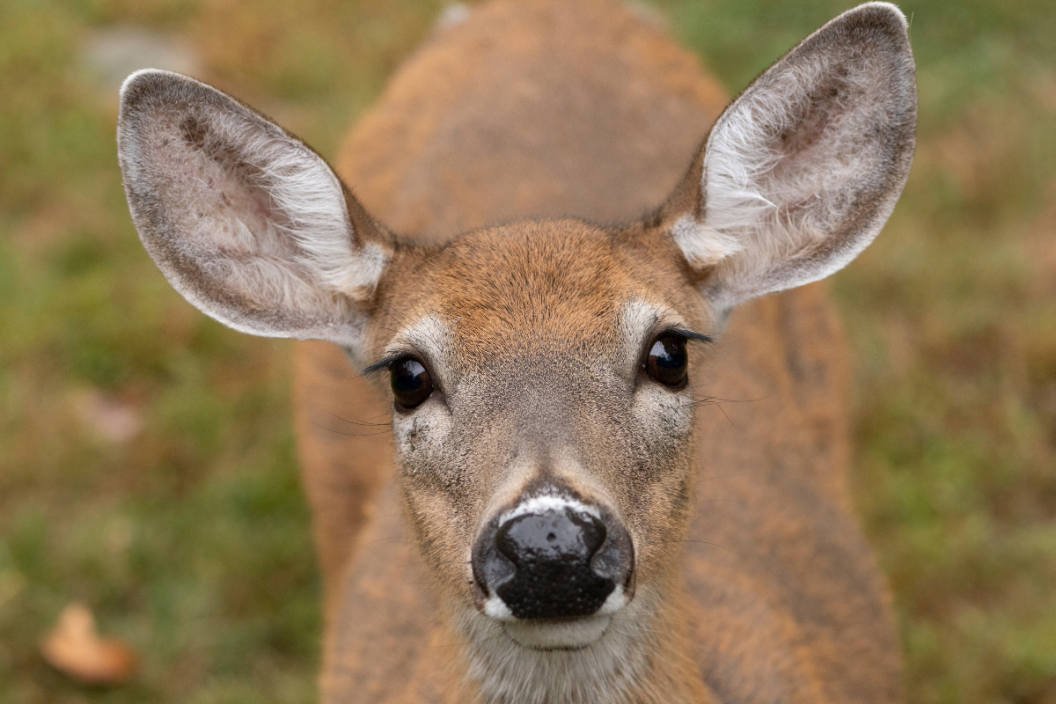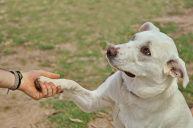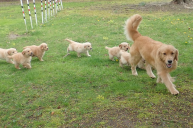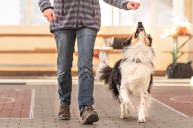The old saying goes, "You can't teach an old dog new tricks." However, that isn't necessarily true.
Dog owners often ask if old dogs can learn new tricks. People think that if training does not happen when dogs are young pups, you may as well forget it. However, there is hope for your adult dog, as it's never too late to implement training with your dog. There are many different reasons why dog training may be necessary for adult dogs. Over time, senior dogs can develop bad habits, or old habits resurface even though time was spent training them when they were young. Dog behavior can also change when younger dogs are introduced into the household. If a rescue senior dog is adopted into a new home, they may need some training sessions to get used to their new environment.
Thankfully, dogs of any age are open to learning new behaviors. But don't be fooled by the old adage: It may just take a little more time and patience with an older dog.
5 Tips For Training Your Older Dog
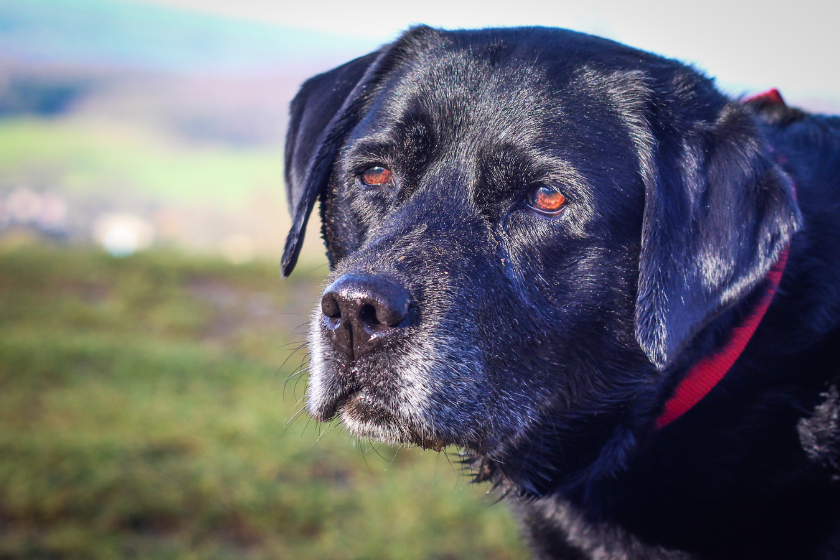
1. Keep It Age-Appropriate
Most dogs are eager to please their owners, no matter their age. However, some older dogs may have some physical limitations that get in the way of learning new tricks. Remember, older dogs' joints often hurt and it may be hard for them to climb stairs, so stick to simple tricks. Things like high five, rolling over, putting away toys, pushing a ball, shaking, and speaking are all tricks that older pups can easily get behind.
2. Provide Positive Reinforcement
Just like puppies, older dogs respond best to positive reinforcement. A new chew toy or a treat can be a nudge in the right direction as you teach your older dog new behaviors. Let's face it. Dog treats are popular with our canine friends no matter how old they are! Some scratches behind the ear and a "good boy!" work as well.
3. Take It Slow
Senior dogs want to learn and bond with their new owners, but it can be difficult. Think about teaching older people new things. The process can take a lot of time and patience. What may come across as stubbornness may just be your dog telling you that they are tired and need a nap. Make sure you watch for their cues and have them take a break.
4. Take Their Breed Into Consideration
Some dog breeds, like border collies, are energizer bunnies, even in their senior years. Most working dogs don't begin to slow down until they are close to the end of their lifetimes, and even then, they still get intermittent bursts of energy.
I once knew a border collie who at 12 would still go out and chase the deer off his property with the same zeal that he did at 6. Breeds that tend to be forever young need jobs even when they are older. Keep that in mind while you are training them to do new tricks!
5. Keep It Fun
Don't put too much pressure on your pup to learn new tricks. New behaviors are just one part of bonding with your senior. Taking them out for walks and some socialization with other pets and people can keep it fun and take some of the pressure off of learning new things.
Tell us on our Wide Open Pets Facebook page.
